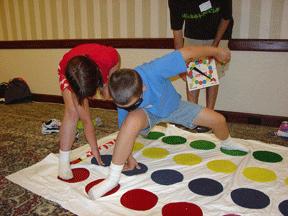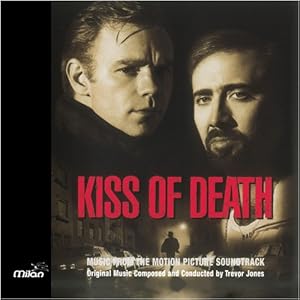Are you a Quiet Speculation member?
If not, now is a perfect time to join up! Our powerful tools, breaking-news analysis, and exclusive Discord channel will make sure you stay up to date and ahead of the curve.
Bad Mojo Spreads.
One of the unfortunate side effects of popularity or power is a tendency for the apparently powerful to engage in delusions of self importance. Put more simply, when you get good at something you tend to be a dick about it. The problem with turning to trading as the focal point of your time spent in the Magic community is the relative ease with which you can become the dominant trader in the room.
Despite all my pretensions otherwise, at this point I would consider it to be incredibly easy for a person to break into the trading scene, simply because of the small size of the culture. Even though Magic is a comparatively large game community, the number of hardcore traders in that group is only a miniscule percentage.
The trap I see many semi-experienced traders fall into is the assumption that other people not caring about trading is the same as the trader being better than them and that the strict players aren’t worthy of their respect. This is wrong on multiple levels.
Magic is a Game

It’s important to remember that Magic is a game and people are in it for different reasons. You’ve heard this time and time again, but it’s important that it sticks - taking advantage of people for the sake of profit has been covered extensively by almost every other writer. But I want to approach this a little differently.
First of all, despite my lecture at the beginning of the article, I find it’s particularly ineffective to pontificate on the moral bankruptcy of sharking. I don’t really want to write it, you really don’t want to read it, and anyone who’s reading Quiet Spec likely has a better moral compass than I give them credit for.
The attitude you take and the persona you project, however, have deep and long lasting repercussions when it comes to your trading. Let’s start with the basic ones.
Opinions Change, Sometimes for the Worse
People will classify the individuals they interact with, bluntly, in two categories: the people they look down on and the people they’re trying to impress. It’s important to note that this is a sliding scale, not a binary problem, and that the differences aren’t always stark and apparent.
If a person looks up to you, the odds are that they probably won’t forever. When I first started trading, a couple people stood out as exceptional traders to me, and I looked at them with respect bordering on awe. As time went on and I understood the process of trading more and more, this awe disintegrated. I started to see the flaws in their logic and to understand the bad trades they made with me for their own benefit.
I no longer trade with those people, because I remember how badly those early trades went for me when I didn’t know any better.
As time has gone on, I’ve tried to get my friends more into trading. Whether or not they plan to dedicate their lives to it, which I sincerely doubt, it’s important to understand card values the same way every person should be able to tell if they’re receiving correct change at the grocery store, or how to use Edmunds to check the value of the new car they want to buy.
I’ve seen them trade with sharks, true sharks, the kind of people who force every dollar they can out of the people they trade with, and I don’t say a thing. After the trade I’ll take my friend aside and explain what just happened. And in some of the more egregious cases I’ll give them some cards to make the damage less severe.
In most cases, however, I do one thing and one thing only: I black ball the shark.
The Kiss of Death

In order to be an effective shark, you need to make a lot of trades with a lot of people and compound your collection. For any trader, one of the most basic needs is for trade partners. I’m not the biggest trader in my area, and I’m probably not even close to the most well known, but I make an impact and math is on my side.
If I refuse to trade with a single trader, I lose one effective partner and so does the other guy - we lose each other. If I tell my friends to avoid him, I still only lose one partner, and he loses everyone I talk to. Maybe a couple of those people I talked to go for the trade anyway, but I can guarantee that they’ll be particularly alert for price inequality and more than willing to draw out the process to get a fair deal.
It’s important to note that this is in no way a threat, but it happens to a lesser extent all the time. Everyone tells their friends about the sharks and the traders, pointing out danger zones. Most of the time the warning isn’t forceful enough to actually dissuade anyone from trading, but it’s a constant drain on your ability to make money.
Bad Karma is Bad Business
This crowd mentality hurts you if you shark hard, but think about this as well: if you take a person for all they’re worth, why would they trade with you in the future? For every person you completely steamroll, the risk goes up significantly that you lose future business because they took the time to check StarCityGames.com. If they do trade with you after having checked the numbers, they’re on the look out for disparity in values and there’s very little chance you can make as much as you could before.
What about if you’re at an SCG Open, however? What if this random guy is just dropping by the trade tables to get some stuff for his EDH deck? It’s in a city you don’t spend time in, and you’re surrounded by people you’ve never seen before and probably won’t see again. Aside from the obvious moral dilemma, what’s the big deal with making as much of a profit as humanly possible on this next trade?
Unfortunately for this hypothetical trader, trades aren’t made in a vacuum. If you’re sitting at the trade tables, you could be surrounded by as many as a dozen people watching your trade out of the corner of their eyes. Every move you make will be subconsciously stored for future use, every price you state will be noted. Luckily for you, for many this information is utilized only so far as to come to a conclusion about whether you know your prices or not. Some, however, the truly great traders, will note some other useful facts.
Take Notes, This is Useful

What cards were priced correctly? What format seemed most accurately valued? What holes were there? What happened when the trade partner quoted an inaccurate number? Was there a consistent response to high values, to low numbers, or to major differences? In what cards was interest expressed?
All these questions, and more, help you or anyone else to assess the skill of the trader in question. For many traders, this assessment or something similar classifies for you the trader. The better they are, the more wary you are of tricks, and the fewer risk you’re willing to take on cards you don’t know exact values for.
This works both ways, however. Remember that huge simplification of interpersonal interaction? Looking down on people and impressing people? It’s easy, having classified a person as an inferior trader to yourself, to look down on them and underestimate their knowledge of financial Magic. It’s even easier to let your guard down, trade for cards the value of which you aren’t sure of and make risky assumptions on the grounds that your goofball trading partner doesn’t know enough to rip you off.
On a side note, a person can take advantage of this by trading in what seems to be a detrimental way. I’m willing to trade at a loss to happy, fresh faces, for two reasons. First of all, I like having new people playing the game. But in a far more selfish state of mind, I understand how my looking stupid in front of sharks makes them much less careful when trading with me.
In the End...
Being the nice guy has its advantages. You have no moral ambiguity, you don’t have the detriment of a network of people talking negatively about you and your trading habits, and you sometimes get the added bonus of a little misinformation.
I’ll take it any day, and I strongly believe the long term benefits far outweigh any short term advantages of sharking. I hope this helped, and I look forward to hearing what you have to say in the comments!





You can be a nice guy and still get value when trading…I feel like I have a response to this article but I am way too lazy to respond. I really like your writing style, btw, keep up the good work!
Thanks for the response! Perhaps I should have been more clear, value trading is one thing, and totally ripping people off is something else. Taking advantage of people who just bought their first pack is bad, but making money without punishing people for being completely new to the magic finance world is not only acceptable, it's exactly what I do. It'd by spectacularly hypocritical for me to say otherwise, since that's what I do.
Okay agreed. I think theres just no distinction between the two in the article. Still loved it tho
At local shops I think being upfront is the most important thing. I'm a dealer, most of the people at the shop know I'm a dealer, and they know they probably won't get much value by trading to me. But, they also know, that if I think a card is going up, or if I can't pay what the median would deem a fair price (i.e. scars duals 1-2 months ago) I'll let them know. Being a friend is more important than being a dealer and that ultimately keeps people loyal so both parties win.
Good article, very well written. That being said, this is not “insider” information. This is public information and should be distributed as such. R2R previews have just started, care to speculate?
I try to avoid trumpeting my speculations unless I'm fairly certain I'm right, just because it sucks to invest in a bunch of recommended cards only to find that you lost all the money you put in. That being said, my next article will deal more with RtR, because by then we'll have more of the set information available and it'll be more possible to guess what the future will hold. in the mean time, brad nelson and gerry thompson both say (and I agree) that the aggressive zombie deck loses nothing, gains consistency and power, and will no longer have to use subpar cards to fill in the gaps between gravecrawler, messenger, and everything else.